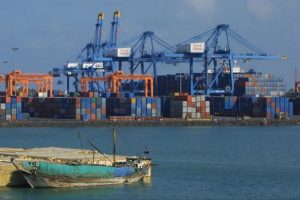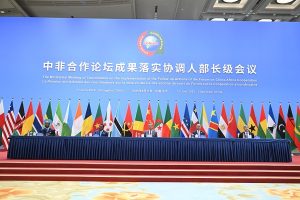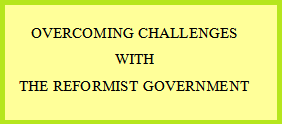
Ethiopia has recently made a turnaround in terms of economic liberalization. While some see the change with caution, others praise it as a worthwhile move in many respects. The market and the economy as a whole are already being impacted by the floating exchange rate measure, which is a component of the ongoing economic liberalization and reform; the entire impact of the change, whether favorable or unfavorable, will be realized later.
A floating exchange rate is an exchange rate system where a country’s currency price is determined by the foreign exchange market, depending on the relative supply and demand of other currencies.
While it is clear that the government considered a variety of variables while taking this action, unforeseen and unprecedented events could still occur and have both short- and long-term effects.
Some are recommending the country get ready for any consequences that may arise from the shift in economic policy, even though discussions on the reform are still running strong and receiving a lot of attention. Dollarization offers advantages and disadvantages as seen in other parts of the world, and its success or failure will depend on how resilient the nation’s regulatory framework is to deal with new risks that arise after the devaluation. Being proactive as opposed to reactive is a fruitful endeavor. In an increasingly unstable world economy, there are too many traps and high stakes. Markets are unpredictable due to both local and global variables, so massive measures apart, the only defense against unheard-of damage is being ready to prevent and respond. It does not require a crystal ball to tell that a slight change let alone a big policy turnaround will have positive and downsides, the sole option which is safest is to remain vigilant and to act quickly and decisively.
So far, the country’s development partners have welcomed the country’s move to a market-based foreign exchange rate. After years of negotiation, the International Monetary Fund (IMF) Board has resumed loan issuance to Ethiopia, approving 3.4 billion USD in the wake of the country’s macroeconomic policy reform. According to the IMF report, the loan will address macroeconomic imbalances, restore external debt sustainability, and lay the foundations for higher, inclusive, and private sector-led growth.
Following the country’s measures, global financial institutions are approving credits and loans to the government. The World Bank and IMF have already allowed Ethiopia access to billions of dollars in loans and aid. The World Bank said on Tuesday that its board has approved 1.5 billion USD in finance for Ethiopia as the country is striving for debt restructuring.
The World Bank said in a statement that it will provide a grant of one billion USD and an additional 500 million USD in a low-interest credit line to Ethiopia. The country also secured 3.4 billion USD in support from the International Monetary Fund (IMF) last Monday, which would enable the country to restructure its debt.
Notwithstanding the benefits of the devaluation, the action may have unintended consequences. Experts predict certain changes in inflation and the cost of living, which might have either a favorable or negative impact. The government will raise staff pay and tax income to handle such situations. Moreover, during an economic transformation, the assistance of the global community is necessary. The nation should receive the funding, know-how, and other support it needs from the international community in order to protect itself from any potential dangers.
More accountability is needed from international lenders than just giving developing nations loans. Ethiopia is one of many nations that struggle with credit payment regulations and restructuring. The foreign exchange policies of these multinational creditors also affect international trade. For inclusive and sustainable development to be supported, the international financial system must be changed. To accomplish the objectives of the breakthrough move, all relevant stakeholders both public and private must implement policies and strategies over the long term and with consistency.
Ethiopia’s latest comprehensive macroeconomic reform tailored to build vibrant and effective free economy, said the Ministry of Planning and Development (MoPD).
The MoPD Development Planning and Government Investment Administration Lead Executive Officer, Bereket Fisehatsion, told The Ethiopian Press Agency (EPA) that the comprehensive macroeconomic reform would have a range of contributions, such as increasing productivity, substituting imports, overcoming debt burdens, improving foreign exchange earnings and so on.
He stated that the nation has been implementing a number of short- and long-term economic changes in recent years, such as the macroeconomic reform agenda, the domestic economic reform, and the ten-year development plan. According to him, one of the macroeconomic reform initiatives the nation has recently implemented to address economic issues is the floating foreign exchange rate system.
This system would address country’s structural economic problems, contributing to allocate resources in effective sectors, overcoming macroeconomic distortions, ensuring sustainable economic growth and its competitiveness, minimizing debt, ensuring fair and effective distribution of foreign exchange in successful sectors, encouraging production and productivity, correcting foreign exchange rate and others, Bereket added.
Moreover, it has a huge contribution to attracting FDI, substituting import, balancing trade deficit and debt structuring among others. In the long run, the new system would reduce debt to GDP ratio and it leads to increase export and revenue, he noted.
“The fundamentals of this reform is getting the price right. If there is a right price in the country, the lenders would release extra finance to mobilize development finance. As a result, country’s debt servicing would be significantly improved,” he said.
According to him, the current macroeconomic reform is directly related with the previous economic reforms and one of the reform measures that planned in the second homegrown economic reform agendas. There would be community sectors that might be impacted following the reform so that the government is working on safety net, subsidization and others legal measures to address these challenges.
In a post on X, senior economist and Chairman of Firefax Africa, Zemedeneh Nigatu, known for his arguments about the necessity of international finance institutions’ policy reform, stated that Ethiopia’s economic reform is a work in progress.
According to him, sustained long-term strategy and policy execution by all key stakeholders (public and private sector) is essential to achieve the goals set under the economic reform program.
Despite Ethiopia’s dissatisfaction with creditors’ policies, the portfolio of creditors is growing. For example, the World Bank’s portfolio in Ethiopia is now around 15.5 billion USD, with 7 billion ready for disbursement, according to the MoF’s latest report. Additionally, the investment portfolios of the International Finance Corporation (IFC) and the Multilateral Investment Guarantee Agency (MIGA) are expected to grow in the coming years, the Ministry of Finance projected.
BY DESTA GEBREHIWOT
THE ETHIOPIAN HERALD SUNDAY EDITION 4 AUGUST 2024



